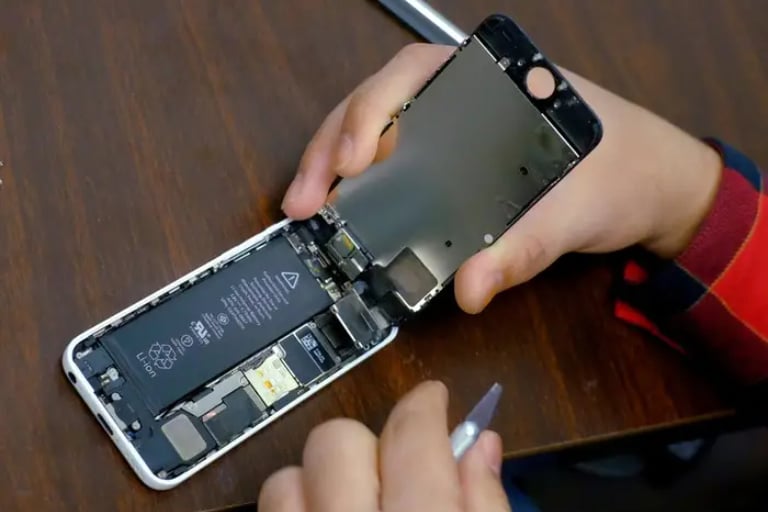According to BGR , a report from last December indicated that the EU wants future smartphones to have removable batteries for easy replacement. The same applies to any electronic device that runs on batteries. This plan was approved by the European Parliament in mid-June. For many, this is good news because they can easily replace iPhone batteries like in the past. However, the significant impact of this law on iPhones is not so simple.

Removable batteries, a feature many smartphone manufacturers have long abandoned, are about to make a comeback?
First, it's important to understand the EU's purpose behind the new law. They want the new battery regulations to have a positive impact on the environment. The ease of battery replacement will extend device lifespan, reduce waste, and improve the collection and recycling of used batteries. Envisioning a world where users can replace batteries, the EU states: “Mobile batteries are considered removable by the end user when they can do so using commercially available tools and do not require specialized tools.”
To be considered commercially available tools, they need to be easily accessible to end users and usable without restrictions, aside from health and safety concerns. While Apple has a DIY iPhone repair program that allows people to replace batteries at home with relatively simple steps, the process is actually not easy, and many people are advised against doing it at home if they lack experience. This stems from several reasons, including accidentally damaging the iPhone during the process or compromising its water resistance.
Apple's self-repair program doesn't meet EU requirements because it still needs specialized tools that aren't easily accessible to users. The problem is, forcing companies like Apple to produce smartphones with easily replaceable batteries might still be a bad idea.
As is well known, iPhone batteries have never been easily replaceable, and many people still wish they were. This is because Apple meticulously plans the internal design of the iPhone to maximize available space. These design optimizations allow the company to use as much space as possible for the battery. Additionally, Apple designs iPhones to be dust and water resistant – a feature highly valued by users, but one that the EU itself hasn't considered.

Equipping smartphones with removable batteries will help extend their lifespan, but it also raises certain concerns.
Apple will likely seek to comply with strict EU regulations on battery replacement, but the company will probably pass those research and development costs on to consumers.
But the EU regulations also have a positive side, as this will make battery replacements even faster at Apple stores. At the same time, battery recycling will be better managed. If the removable battery law is officially implemented, Apple and every other company will have to find ways to design smartphones with easily replaceable batteries. As with any proposal, it could take many more years before Apple and other handset suppliers are forced to comply with the law.
Source link








![[Photo] General Secretary To Lam presides over a meeting with the Editorial Teams to summarize 100 years of the Party's leadership of the Vietnamese revolution and 40 years of implementing the National Construction Program.](https://vphoto.vietnam.vn/thumb/1200x675/vietnam/resource/IMAGE/2026/03/04/1772601288977_a1-bnd-8134-7576-jpg.webp)





































































































Comment (0)